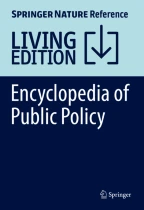
Policy evaluation is traditionally presented as the final step in a policy cycle. According to the sequential approach to public policy, evaluation allows to look back at the social problem that led to the development and implementation of a public intervention. The purpose of evaluation is to provide information on how public programs or policies contribute (or not) to alleviating or eliminating the original problem.
Policy analysts and evaluators have long known that evaluation serves more functions within the policy cycle than the reductive image conveyed by the sequential approach. In this entry, we aim to highlight the contributions that evaluators can make to better understand policies and identify the different roles that evaluation plays throughout the policy cycle.
The most comprehensive and widely used definition of evaluation is formulated by Michael Scriven (1991) who states that evaluation is the “process of determining the merit, worth or value of something.